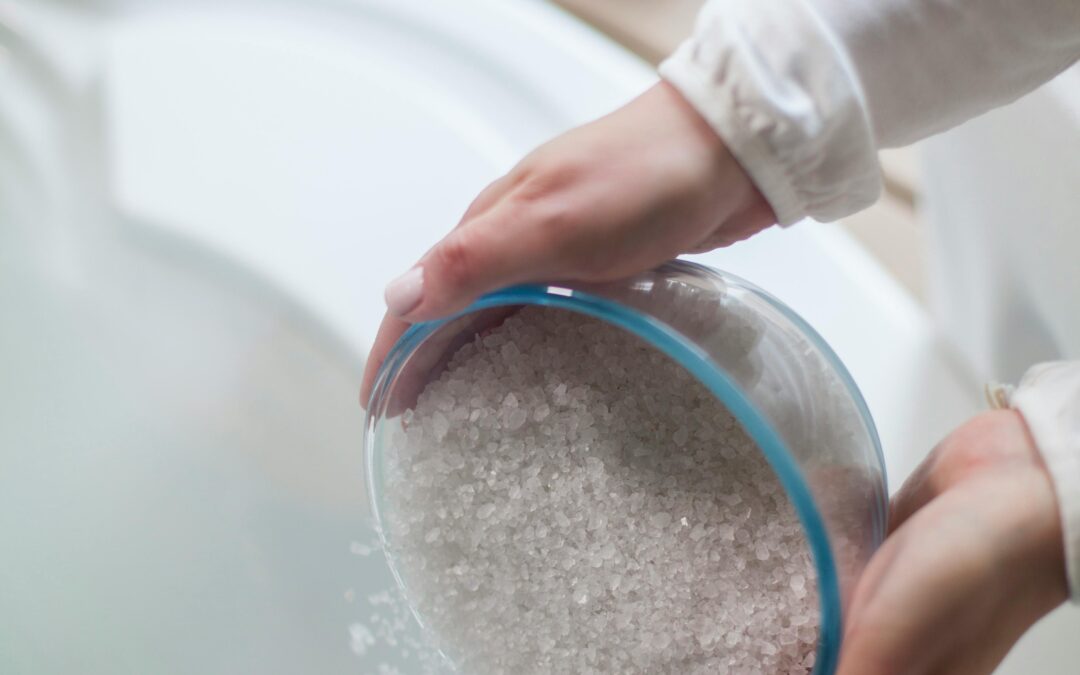Introduction: Why Essential Oil Bath Safety Matters
Adding essential oils to your bath sounds relaxing and therapeutic, but without proper dispersal, it can lead to skin irritation or worse. This article breaks down the science behind essential oil solubility and how to ensure your bath is both safe and effective.
Understanding Molecules: Polar, Non-Polar, and Ionic
Chemistry might not have been everyone’s favorite subject, but understanding a few key concepts is crucial for safe essential oil use in baths.
- Polar Molecules: Have slightly positive and negative charges (e.g., water).
- Ionic Substances: Act like extremely polar molecules (e.g., salts, baking soda).
- Non-Polar Molecules: Do not have charged ends (e.g., essential oils).
Rule of Thumb: Like dissolves like. Polar dissolves polar, and non-polar dissolves non-polar. You can easily see now that taking an essential oil which is non-polar and adding it to water, or even Epsom salts is not safe or effective.
Why Essential Oils and Water Don’t Mix
Water (polar) and essential oils (non-polar) are fundamentally different. When you add essential oils directly to water—or even mix them with salts or baking soda—they’ll float on the surface.
✅ What happens when you add essential oils to water?
- Oils float on top.
- Skin contact can cause irritation, rashes, or sensitization.
- Warm water won’t change this behavior.
- Vigorously swishing won’t change this behavior.
Common Myths About Essential Oils in Baths (Busted!)
Myth 1: “Baking soda will absorb essential oils and disperse them.”
- ❌ False. Baking soda is ionic and won’t properly disperse non-polar essential oils.
Myth 2: “Warm water helps essential oils mix with salts or baking soda.”
- ❌ False. While salts dissolve faster in warm water, essential oils will still float on top.
The Right Way to Use Essential Oils in Your Bath
To safely disperse essential oils in a bath:
- Use an emulsifier like carrier oil (e.g., jojoba oil or coconut oil).
- Blend essential oils with a solubilizer specifically designed for baths.
- Follow recommended dilution guidelines for essential oils in bath products.
Pro Tip: Avoid adding essential oils directly to your bath water, no matter how tempting it might seem.
Final Thoughts: Safety First for a Blissful Bath Experience
Understanding the chemistry of essential oils ensures you can enjoy their benefits without risking skin irritation or discomfort. Always use proper dispersants and respect the science behind the soak.
Enjoy your aromatic bath safely and blissfully! 🫧✨




